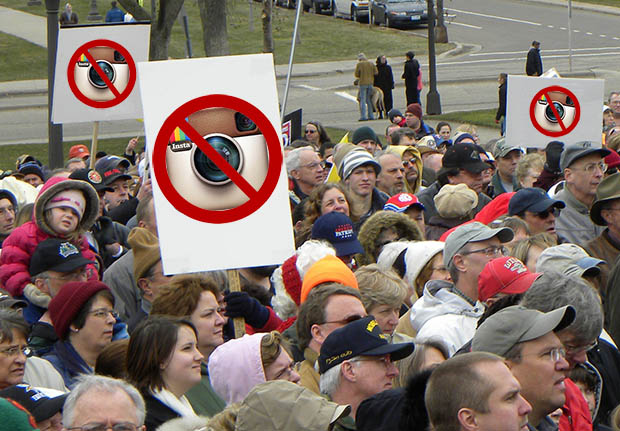There was a huge online outcry from users when Instagram introduced a new privacy policy and Terms of Service that will take effect on January 16, 2013. Concerns were raised over changes that would allow for Instagram to sell users photos to advertisers without notice or compensation.
Instagram’s 100 million users use the popular app to take stylized picture of everything from food they enjoy to pets or any other aspect of their daily lives to share online. When the news of the proposed changes hit Twitter, the story and accompanied anger towards them went viral.
This change comes just four months after the social media giant Facebook purchased Instagram for one billion dollars. The new policy states: "A business or other entity may pay us to display your username, likeness and photos."
Later that same day, Instagram issued a blog post stating:
"Advertising is one of many ways that Instagram can become a self-sustaining business, but not the only one. Our intention in updating the terms was to communicate that we’d like to experiment with innovative advertising that feels appropriate on Instagram."
"Instead it was interpreted by many that we were going to sell your photos to others without any compensation. This is not true and it is our mistake that this language is confusing. To be clear: it is not our intention to sell your photos. We are working on updated language in the terms to make sure this is clear."
Now that Instagram is owned by Facebook, it may be a similar scenario to how updates to Facebook have typically played out. Facebook has a tendency to roll out mass changes with the anticipation of user backlash; only to retract part of their updates. It’s a case of moving 10 steps forward and taking 1 back, ultimately the changes still get adopted.
The simple truth is that whenever you are online, whenever you use an App, it is very likely that your information is being used by the site or is being sold as data to interested third parties. The best way to maintain some semblance of privacy is to not go online at all – which wherein lies the irony.
It is almost impossible for most of us not to be connected to the internet at some point every day; be it through a PC, a Smart Phone or tablet. When we go online our user data is collected, stored and researched by a multitude of companies for a variety of purposes; some benign, some nefarious.
We are only now becoming aware that we are no longer just consumers; we are in fact walking product endorsements and advertisements for big business. What happens in the next few years will determine our new role in the emerging global marketplace. Do we want to protect our privacy, or do we want ads that are geared towards our relevant interests?
